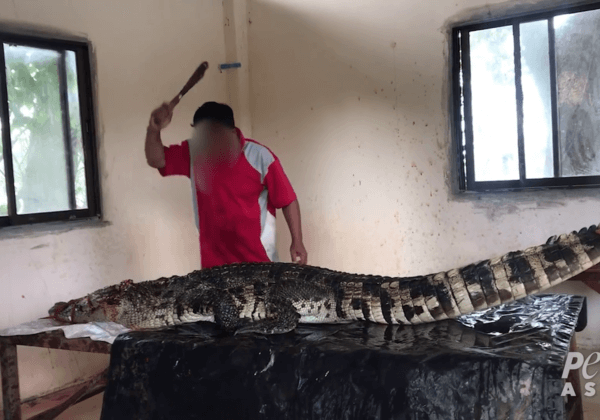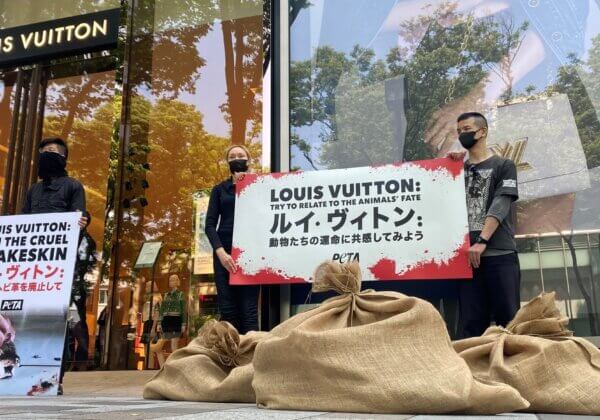Stella McCartney Gifts Beautiful Faux-Fur Coat to Sophia Loren
Long-time PETA supporter Stella McCartney is gifting screen icon Sophia Loren, who recently turned 86, a luxurious, cruelty-free coat from McCartney’s new collection for her birthday.
The coat is made with KOBA, the world’s first bio-based faux fur, created exclusively by ECOPEL.

PETA and McCartney hope to inspire Loren to follow the lead of compassionate fashionistas who no longer wear fur. Many of the most influential names in fashion, including Armani, Burberry, Chanel, Prada, Versace, Furla, and Gucci, have sworn off fur – an industry which Gucci CEO and President Marco Bizzarri has called outdated.
Fur Is Cruel
Minks, foxes, and others exploited on fur farms are forced to live in cramped, filthy conditions before being tormented and slaughtered for their skin. A recent PETA investigation into fur farms in Russia – the third-largest producer of fur in the world – found that workers bashed rabbits with a metal pipe and hacked off their heads while they were still conscious, electrocuted chinchillas and broke their necks, and subjected animals to other horrors.
Living in packed cages – far from their native homes and with no opportunity to play, jump, run, or do anything else that comes naturally to them – often drives these inquisitive, intelligent animals insane during their short lives. Fighting, self-mutilation, and cannibalism are common on fur farms.
Environmental Hazard
The fur industry doesn’t just put animals through a living hell before tearing off their skin – it’s also detrimental to the planet. A study of mink farms in Europe determined the impact of fur production with regard to 18 different environmental issues – such as the climate crisis, ozone pollution, and water and land use. For 17 of the 18 issues, fur was found to be far more harmful than any other material.
Producing 1 kilogram of fur has a carbon dioxide equivalent (CO2e) factor of about 130 to 140 kilograms, compared to around 6 to 7 kilograms of CO2e for 1 kilogram of faux fur.
Breeding Grounds for Disease
Scientists now warn that as well as being inherently cruel, fur farms could also become reservoirs for future pandemics, as cases of COVID-19 continue to spread rapidly between workers and sick animals on fur farms. The public health risk has prompted the Dutch parliament to vote to close all remaining mink farms in the country within the year.
SARS and the novel coronavirus first infected humans who came into close contact with captive wildlife at live-animal markets – which represent a similar public health risk to that posed by fur farms.
Fur farm:
Live-animal market:

What You Can Do
Compassion is the fashion! Vegan furs are available online and in stores everywhere, and companies pay attention to consumers’ opinions and make decisions based on what people are buying. Please, help animals by never buying fur.








